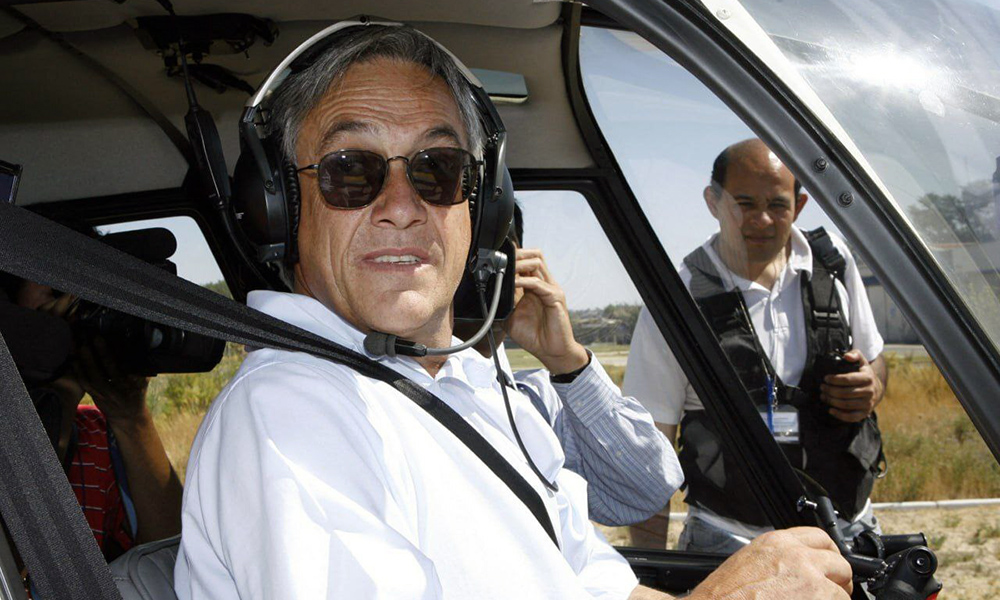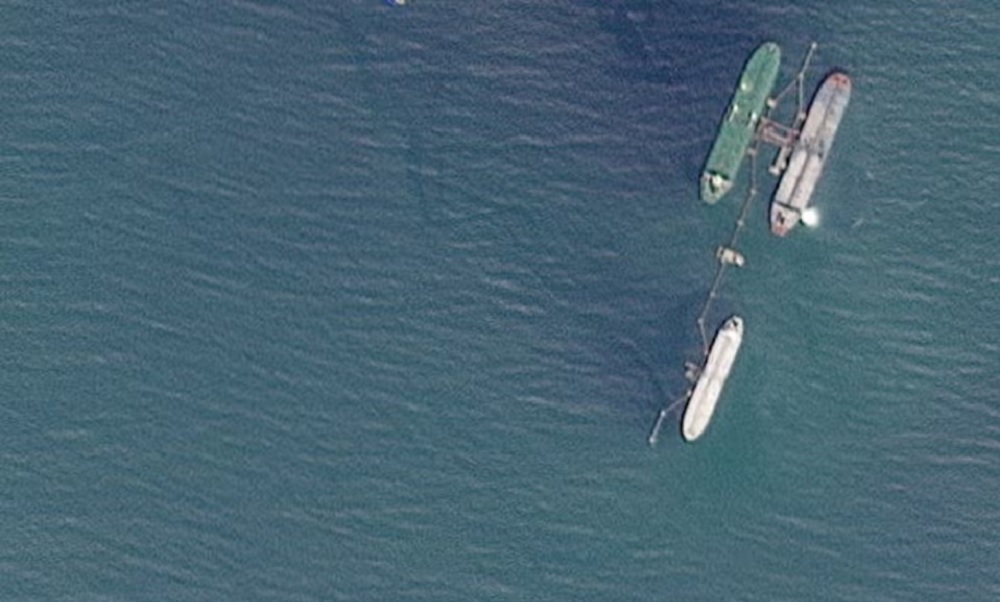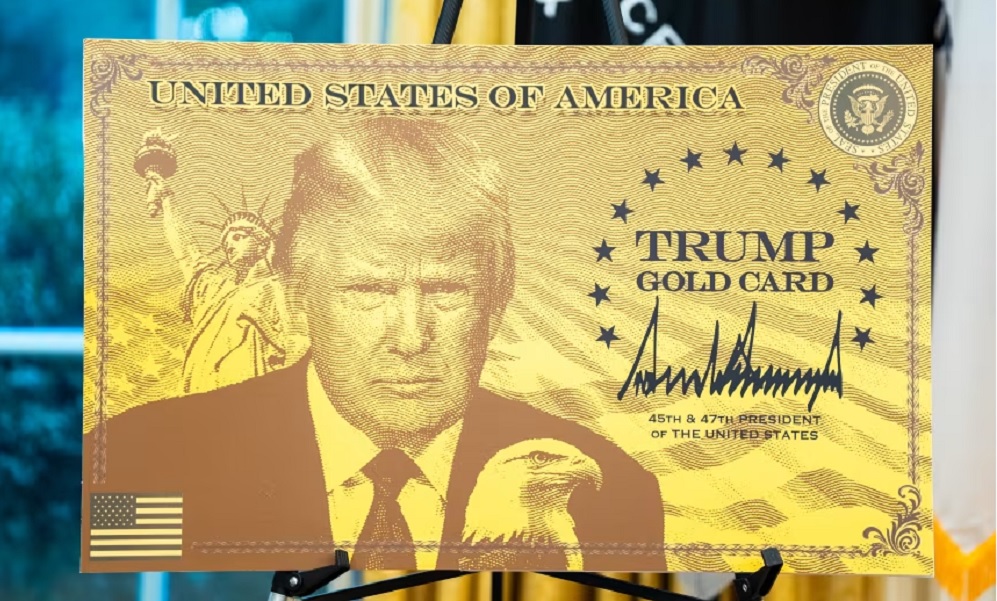World
Chile’s former president Sebastian Pinera dies in helicopter crash

Chilean ex-President Sebastian Pinera died in a helicopter crash on Tuesday, sending the country he led for two terms into mourning and prompting an outpouring of condolences from leaders across Latin America, Reuters reported.
The helicopter carrying Pinera, 74, and three others plunged into a lake in southern Chile. The former president was pronounced dead shortly after rescue personnel arrived at the scene. The other three passengers survived.
Two sources told Reuters Pinera was the pilot, although officials have not confirmed that, nor the helicopter’s intended destination.
Pinera often spent the Southern Hemisphere summers near the picturesque lakes that dot Chile’s south, and frequently piloted his own helicopter.
President Gabriel Boric declared three days of national mourning, while preparations have begun for a state funeral on Friday for the former leader, who served two non-consecutive terms between 2010 and 2022.
Interior Minister Carolina Toha said the ex-president’s body had been recovered from the lake, near the town of Lago Ranco, read the report.
“We remember him for the way he dedicated his life to public service,” said Toha, who has been helping to lead efforts to battle deadly wildfires in recent days.
Pinera was perhaps best known abroad for his role overseeing the spectacular rescue in 2010 of 33 miners who were trapped underneath the Atacama desert. The event became a global media sensation and was the subject of a 2014 movie, “The 33.”
In Chile, he was known as a successful businessman whose first term was boosted by rapid economic growth but who was often seen as out-of-touch with the country’s fast-changing society.
Both his presidencies were marred by frequent protests – of students demanding education reform in the first term, and of wider and often violent protests against inequality in his second term that ended with the government promising to draft a new constitution.
After leaving the presidency, Pinera remained active in politics, speaking out on issues like the attempt to draft a new constitution – which ultimately failed – and backing conservative politicians in the region, including Argentine President Javier Milei.
Former Argentine President Mauricio Macri expressed his sadness at the news of Pinera’s death. “He was a good person, committed like no one else to Chile and to the values of freedom and democracy in Latin America,” he said.
The son of a prominent centrist politician, Pinera was a Harvard-trained economist who made his fortune introducing credit cards to Chile in the 1980s.
He was also a major shareholder in the flagship airline formerly known as LAN, local soccer team Colo-Colo, and a television station, although he sold most of those holdings when he took over the presidency in March 2010. As of 2024, he was ranked 1,176 on Forbes’ global rich list, with a net worth of $2.7 billion, Reuters reported.
Known for a driven and competitive personality, one friend described Pinera as someone who could be a bully, reluctant to delegate responsibility.
He was also a risk-taker who enjoyed deep-sea diving.
Running for election to the presidency after a spell as a center-right senator, he wooed moderate voters by portraying himself as the leader of a new right and an entrepreneur who made his fortune with hard work.
At the same time, he distanced himself from the 1973-1990 rule of General Augusto Pinochet, when more than 3,000 suspected leftists were killed or “disappeared.”
He lost his first attempt at the top job in 2005 to popular center-left leader Michelle Bachelet, but she was barred constitutionally from running for a second consecutive term and in 2009 he beat ex-president Eduardo Frei by a small margin.
That ended the 20-year rule of the center-left and fended off the bitter memories of Pinochet’s bloody dictatorship that had hurt the right in past elections.
His honeymoon with the electorate was short-lived, though, and his stiff manner contrasted with the more amiable Bachelet, who both preceded and succeeded him as president.
Despite plaudits for his government’s economic record, many Chileans felt he did not do enough to tackle deep inequality or address inadequacies in the country’s education system.
Pinera and his wife Cecilia Morel had four children.
World
Venezuela-US tensions spike in wake of seized tanker as Nobel winner vows change

Venezuelan opposition leader Maria Corina Machado on Friday promised political change after slipping out of the country in secret to collect the Nobel Peace Prize, as the shock waves intensified from the Trump administration’s seizure of an oil tanker earlier this week.
That escalation came on the heels of a large-scale U.S. military buildup in the southern Caribbean as President Donald Trump campaigns to oust Venezuelan leader Nicolas Maduro, pushing relations to their most volatile point in years, Reuters reported.
The effects could ripple through the region, with Venezuelan oil exports falling sharply and crisis-stricken Cuba, already straining to power its grid, at risk of losing supply.
The U.S. seizure of the Skipper tanker off Venezuela’s coast on Wednesday marked the first U.S. capture of Venezuelan oil cargo since sanctions were imposed in 2019.
The vessel is now heading to Houston, where it will offload its cargo onto smaller ships, Reuters reported.
The Trump administration does not recognize Maduro, in power since 2013, as Venezuela’s legitimate leader.
Washington has signalled more seizures are planned as part of efforts to choke off sanctioned oil flows, and subsequently imposed new sanctions on three nephews of Maduro’s wife and six tankers linked to them.
The U.S. military presence in the Caribbean has grown as Trump in recent weeks has discussed potential military intervention in Venezuela, based on accusations that the country ships narcotics to the United States. The Venezuelan government has denied the accusations.
So far there have been over 20 U.S. military strikes in the Caribbean and Pacific against suspected drug vessels this year, in which nearly 90 people have been killed, alarming human rights advocates and stirring debate among U.S. lawmakers.
While many Republicans have backed the campaign, Democrats have questioned whether the campaign is illegal and urged more transparency, including the release of a full, unedited video, opens new tab of strikes on a suspected drug-trafficking boat.
MACHADO DEFIES BAN, URGES TRANSITION
Machado defied a decade-long travel ban and a period in hiding to travel to Oslo on Thursday, noting that she would soon bring the Nobel Peace Prize back home to Venezuela.
She said Maduro would leave power “whether there is a negotiated changeover or not,” vowed she is focused on a peaceful transition, and thanked Trump for his “decisive support.”
Machado is aligned with U.S. hardliners who accuse Maduro of ties to criminal networks – claims that U.S. intelligence has reportedly questioned.
When asked at a press conference in Oslo if she believed U.S. intervention was needed in Venezuela, Machado replied, “We are asking the world to help us.”
Venezuela condemned the tanker seizure as “blatant theft” and “international piracy,” saying it would file complaints with international bodies.
At the same time, Venezuelan lawmakers took a step to withdraw the country from the International Criminal Court, which is currently investigating alleged human rights abuses in the South American country.
Adding to the friction, the Venezuelan government announced the suspension of a U.S. migrant repatriation flight on Friday. A U.S. official countered that deportation flights would continue.
World
Putin arrives in Ashgabat to hold series of meetings

Russian President Vladimir Putin has arrived in Turkmenistan’s capital for a two-day visit.
According to TASS, the presidential aircraft of the Rossiya Special Flight Detachment landed near the presidential terminal of Ashgabat International Airport, commonly referred to as the “small bird” for its distinctive design.
During his visit, Putin will attend an international forum titled “Peace and Trust: Unity of Goals for a Sustainable Future” and hold several bilateral meetings.
The Kremlin has confirmed talks with Turkish President Recep Tayyip Erdogan, while the Iranian Embassy has announced that a meeting with President Masoud Pezeshkian is also planned.
The Ashgabat forum will also be attended by Turkmen President Serdar Berdymukhamedov, along with the presidents of Armenia, Iraq, Kazakhstan, Kyrgyzstan, Uzbekistan and Tajikistan, as well as the prime ministers of Azerbaijan, Hungary, Georgia and Pakistan.
World
Trump launches gold card program for expedited visas with a $1 million price tag

President Donald Trump’s administration officially launched his “Trump Gold Card” visa program on Wednesday to provide a pathway, with a steep price, for non-U.S. citizens to get expedited permission to live in the United States.
The website Trumpcard.gov, complete with an “apply now” button, allows interested applicants to pay a $15,000 fee to the Department of Homeland Security for speedy processing, Reuters reported.
After going through a background check or vetting process, applicants must then make a “contribution” — the website also calls it a “gift” — of $1 million to get the visa, similar to a “Green Card,” which allows them to live and work in the United States.
“Basically it’s a Green Card, but much better. Much more powerful, a much stronger path,” Trump told reporters at the White House. “A path is a big deal. Have to be great people.”
Commerce Secretary Howard Lutnick said some 10,000 people have already signed up for the gold card during a pre-registration period and he expected many more to do so. “I would expect over time that we’d sell, you know, thousands of these cards and raise, you know, billions, billions of dollars,” Lutnick told Reuters in a brief interview.
Lutnick said the gold card program would bring people into the United States who would benefit the economy. He compared that to “average” Green Card holders, whom he said earned less money than average Americans and were more likely to be on or have family members on public assistance. He did not provide evidence for that assertion.
Trump’s administration has pursued a broad crackdown on immigration, deporting hundreds of thousands of people who were in the country illegally and also taking measures to discourage legal immigration.
The gold card program is the Trump version of a counter balance to that, designed to make money for the U.S. Treasury in the same way the president, a former New York businessman and reality television host, has said his tariff program has successfully done.
Lutnick noted that there was also a corporate version of the gold card that allowed companies to get expedited visas for employees they wanted to work in the United States, for a $2 million contribution per employee.
-

 Sport4 days ago
Sport4 days agoILT20: Desert Vipers edge Gulf Giants in historic super over thriller
-

 Latest News2 days ago
Latest News2 days agoMuttaqi: Afghanistan’s progress requires both religious and modern education
-

 Regional4 days ago
Regional4 days agoSix Pakistani soldiers killed in TTP attack in Kurram District
-

 Business4 days ago
Business4 days agoTrade bodies warn almost 11,000 Afghan transit containers stuck at Karachi port
-

 World4 days ago
World4 days agoPowerful 7.6 earthquake hits northern Japan, tsunami warnings issued
-

 Latest News3 days ago
Latest News3 days agoTrump calls Afghanistan a ‘hellhole’ country as US expands immigration restrictions
-

 Sport5 days ago
Sport5 days agoSorkh Poshan Khafi defeats Sarsabz Yashlar 4-0 in Afghanistan Champions League
-

 Sport3 days ago
Sport3 days agoCommanding wins for Arman FC and Sarsabz Yashlar in Afghanistan Champions League
























